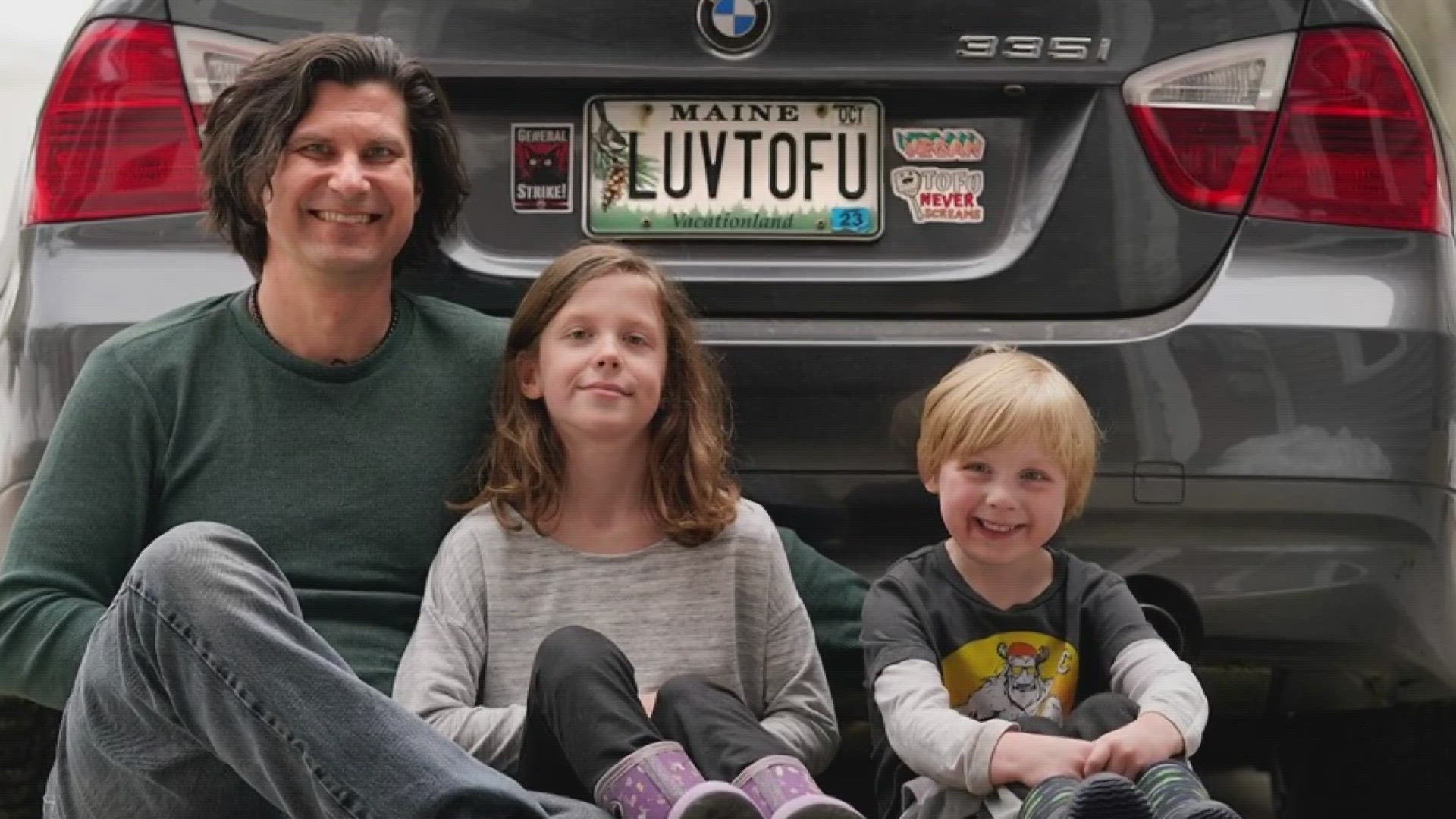AUGUSTA, Maine — EDITOR'S NOTE: The video above aired Oct. 28, 2022.
A Maine vegan whose custom license plate contains the word “tofu” is one of the motorists caught in a state crackdown on vulgar license plates.
Car owners across the United States can pay an extra fee to customize license plates, sparking creativity and personality but causing headaches for state officials who have to decide what’s acceptable.
Maine had for several years allowed people to put just about any combination of letters and numbers on their vehicle plates, including words and phrases that other states would ban. But the state decided to change course and this year recalled 274 plates it deemed inappropriate.
Some people are fighting back.
So far the state has rejected all of the appeals, including one brought by the vegan whose license plate referenced tofu.
The state concluded the license plate “LUVTOFU” could’ve been seen as a reference to sex instead of admiration for bean curd. The motorist insisted there was no mistaking his intent because the back of his car had several tofu-related stickers.
“It’s my protest against eating meat and animal products,” Peter Starostecki, the disappointed motorist, said after a zoom session with a hearing examiner for the Maine Bureau of Motor Vehicles.
Heather Libby and her best friend grudgingly gave up their matching license plates that contained a word for a female dog.
“People are so sensitive nowadays,” said Libby, of Jonesport, after a hearing examiner rejected her appeal. “I just think it’s foolish.”
When the state effectively ended the review process for so-called “vanity” license plates in 2015, some residents obtained their plates with all manner of profanities, including F-bombs, either spelled out or abbreviated.
Residents in a state known for being laconic and even-tempered soon were sporting uncensored plates pairing the F-word with “snow,” “haters,” and “ALS,” — the incurable neurodegenerative disease.
After license plate freedoms spiraled out of control, the Maine Legislature directed the Bureau of Motor Vehicles to reestablish a system for vetting the state’s roughly 120,000 vanity license plates.
The new rules ban derogatory references to age, race, ethnicity, sexual orientation, gender identity, national origin, religion, or disability. Also banned is language that incite violence, or is considered obscene.
Restored as censors, Maine’s vehicular officials now walk a similar tightrope as their colleagues in other states.
In 2020, a federal judge ruled California’s ban on plates that are “offensive to good taste and decency” was overly broad, and violated constitutional rights to free speech. Earlier this year, Texas officials rejected a license plate similar to Starostecki’s — “LVTOFU” — leading to rebuke from an animal rights group.
Maine’s rules were narrowly crafted to pass legal muster, officials said.
Secretary of State Shenna Bellows said motorists have the freedom to express themselves, but she said that they should do it on a bumper sticker, not a state-issued license plate.
“We have a public interest in keeping phrases and words that are profane or may incite violence off the roadways,” she said.
She said she’s happy that most motorists have relinquished their objectionable license plates without a fight. So far, there have been only 13 appeals, but there could be more.
If a motorist loses an appeal to a hearing examiner, then they can sue in Superior Court. So far, no one has taken that step.
As for Starostecki, he was offered another license plate that had become available, V3GAN. But he decided he was done with vanity plates. He’s awaiting a new license plate — a boring one randomly selected by the state.
Libby, who lost her B-word plate, got a custom plate celebrating her dog Zeus, named for the mythical god of thunder. “That could be offensive to someone because it’s a Greek god,” she quipped. “But I hope not.”

